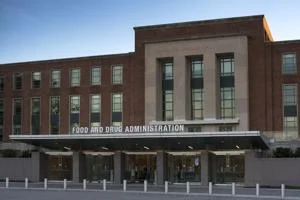The U.S. Food and Drug Administration sent letters to seven companies that sell opioid alternative products containing 7-hydroxymitragynine, also known as 7-OH.
“This action reflects the Agency’s growing concern around novel potent opioid products being marketed to U.S. consumers and sold online and in smoke shops, gas stations, and corner stores,” the FDA announced Tuesday. “While 7-OH occurs naturally in trace amounts in kratom, the Agency’s letters focus on concentrated 7-OH products such as tablets, gummies, drink mixes, and shots, which may be dangerous.”
Kratom, made from the leaves of a tropical tree called Mitragyna speciosa that is native to Southeast Asia, contains two main chemical components: mitragynine and 7-hydroxymitragynine. The University of Florida College of Pharmacy says that kratom products should contain no more than 66% mitragynine as the main alkaloid and 2% 7-hydroxymitragynine.
Some products contain higher levels of 7-hydroxymitragynine. Hydroxie, for example, sells products it says contain 15 mg to 30 mg of 99% pure 7-OH. Preparations from other companies include products ranging from 5 mg to 22 mg of 7-OH.
Products prepared from kratom leaves are available in the U.S. through internet sales, and at brick-and-mortar stores. Kratom is often used to self-treat conditions such as pain, coughing, diarrhea, anxiety and depression, opioid use disorder, and opioid withdrawal. An estimated 1.7 million Americans 12 and older used kratom in 2021, according to the Substance Abuse and Mental Health Services Administration’s National Survey on Drug Use and Health.
The FDA issued warning letters to Shaman Botanicals LLC, My Smoke Wholesale, Relax Relief Rejuvenate Trading LLC dba RRR Trading or EDP Kratom, Thang Botanicals, Inc. dba 7ΩHMZ, 7-OHMZ, or 7OHMZ, Royal Diamond Imports Inc. dba Roxytabs.com, Hydroxie LLC and 7Tabz Retail LLC.
The letters ask that the recipients respond within 15 business days.
7-OH is not lawful in dietary supplements and cannot be lawfully added to conventional foods. Additionally, there are no FDA-approved drugs containing 7-OH, and it is illegal to market any drugs containing 7-OH.
“Consumers who use 7-OH products are exposing themselves to products that have not been proven safe or effective for any use,” according to the FDA.
The warning letters address the illegal marketing of products containing 7-OH. The letters specifically focus on products containing 7-OH as an added ingredient or enhanced levels of 7-OH. Some products are adulterated conventional foods or dietary supplements because 7-OH does not meet the relevant safety standard. Others are unapproved new drugs with unproven claims such as relieving pain and managing anxiety, according to the FDA.
Hydroxie did not immediately respond to a request for comment on how it would respond to the FDA letter or what the letter would mean for the company and consumers of its products.






